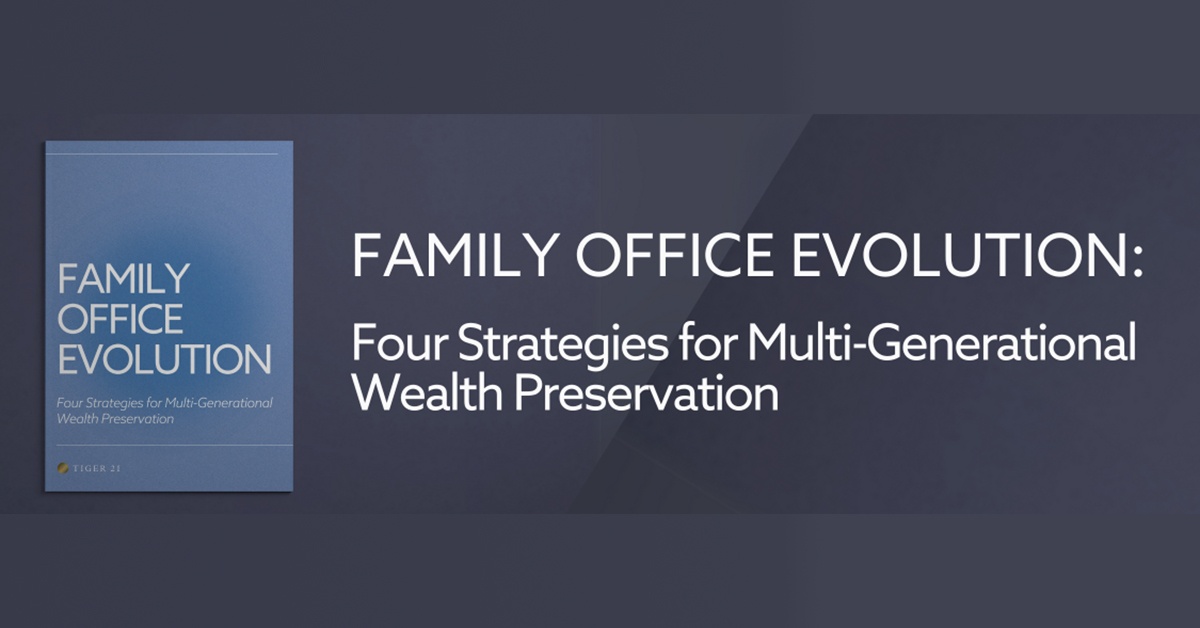What is a Family Office?

Family offices are established to manage and oversee the financial affairs, investments, and other aspects of wealth for the ultra-high-net-worth. The primary purpose of a family office is to preserve and grow the family’s wealth across generations while providing personalized services and expert guidance.
At its core, a family office functions as a private wealth management firm exclusively dedicated to a particular family or a small number of families. It offers a wide range of services tailored to the family’s requirements, including investment management, estate planning, tax optimization, philanthropy, and intergenerational wealth transfer. Moreover, it can handle administrative tasks such as bill payment, bookkeeping, and family governance.
The family office acts as a trusted advisor, coordinating and executing various financial functions to ensure long-term financial security and harmony. It enables families to focus on their priorities and aspirations while relying on a dedicated team of professionals to navigate the complexities of wealth management.
Financial Services
Family offices provide a wide range of financial services tailored to the unique needs of UHNW individuals and their families. While the specific services offered may vary depending on structure and preferences, there are several common financial services that are typically provided. For more information, read our blog on family office financial services.
Investment Management
UHNW individuals often seek professional expertise to manage their investment portfolios, including asset allocation, risk management, and identifying investment opportunities across various asset classes such as stocks, bonds, real estate, private equity, and alternative investments. Family offices typically employ experienced investment professionals who employ sophisticated strategies to preserve and grow wealth.
Estate Planning
UHNW individuals require comprehensive strategies to ensure the smooth transfer of their assets to future generations while minimizing tax liabilities. Family offices collaborate with legal and tax experts to create trusts, establish foundations, implement gifting strategies, and develop succession plans to preserve wealth and facilitate intergenerational wealth transfer.
Tax Optimization
UHNW individuals often face complex tax situations, and family offices work closely with tax professionals to develop strategies that minimize tax obligations while maintaining compliance with applicable regulations. This includes tax planning, structuring investments efficiently, utilizing tax incentives, and managing cross-border tax considerations.
Philanthropy and Charitable Giving
Family offices assist in creating and implementing philanthropic strategies, establishing foundations, managing charitable donations, and ensuring alignment with values and social impact goals.

Types of Family Offices
There are a few types of family offices that can be chosen, depending on factors such as the complexity of financial affairs, the need for customization, and the desire for cost efficiencies and shared resources. Ultimately, the decision revolves around finding the most suitable model that aligns with the family’s goals, preferences, and long-term vision for their wealth management.
There are primarily two common types of family offices: single family offices (SFOs) and multi-family offices (MFOs). However, some MFOs may offer certain families the option for additional customization and exclusivity, resembling elements of a single SFO.
There can also be variations and hybrid models based on the preferences and circumstances of individual families. Some may choose to establish a SFO initially and later transition to a MFO to take advantage of shared resources.
A hybrid approach is a type of structure that combines elements of both SFOs and MFOs. It is designed to offer a customized and flexible approach to wealth management where certain services and resources are shared among multiple families, allowing for cost efficiencies and the pooling of expertise.
Single Family Offices vs Multi-Family Offices
Each of the two primarily common types of family offices caters to the needs of affluent families but with some key distinctions.
SFOs are private entities established by a single wealthy family to exclusively manage their financial affairs. SFOs serve the needs and objectives of one family, providing highly personalized and tailored services.
MFOs cater to the needs of multiple affluent families, often serving as a shared platform that provides economies of scale and cost efficiencies. MFOs pool together the resources and expertise of several families, enabling them to access a broader range of services while sharing the associated expenses.
For more information read our blog on the differences between SFOs and MFOs.
Family Office vs Wealth Management
Family offices and wealth management services both cater to the financial needs of affluent individuals and families, yet they differ significantly in scope and approach.
Wealth management services strictly focus on investment management and financial planning. These services are typically provided by financial advisory firms or private banks and concentrate on optimizing investment portfolios, managing risks, and achieving specific financial goals. While wealth management services can offer expert investment advice, they might not extend to the broader spectrum of services that family offices provide, such as estate planning or philanthropic strategy development.
The main difference lies in the comprehensiveness and customization of services. Family offices offer a more holistic and tailored approach that considers a family’s entire financial ecosystem, while wealth management services tend to center on investment management or guidance within a defined scope.
Get more insight on the differences between family offices and wealth management services, and what may be right for you.
How to Choose the Right Family Office
The family office acts as a trusted advisor, coordinating and executing various financial functions to ensure long-term financial security and family harmony.
Choosing the right family office requires careful consideration of various factors to ensure it aligns with your unique needs and objectives.
- After assessing your family’s financial situation and goals, determine whether you require comprehensive services beyond investment management, such as estate planning, tax optimization, and philanthropy. Consider the level of customization you desire. If you value a tailored approach, an SFO or a hybrid model might be more suitable. If shared resources and cost efficiencies are important, a MFO could be a better fit.
- Evaluate the expertise and track record of the team. Look for professionals experienced in wealth management, legal, tax, and other relevant areas. A successful track record and a deep understanding of your family’s values and goals are essential. Additionally, examine technology and reporting capabilities. Transparent and accessible reporting can significantly enhance your understanding of your financial situation.
- Review the approach to family governance and intergenerational wealth transfer. A well-defined strategy for passing on wealth and values to the next generation is crucial for long-term success.
- Finally, consider the cultural fit and the level of communication you expect. Establishing a strong relationship with your team is vital, as they will be your trusted advisors for years to come.
Setting Up a Family Office
Setting up a family office comes with its own set of challenges – to learn more, read our blog. If you are interested in learning from and sharing with others who are creating or running their family office, TIGER 21 offers a peer learning community to specifically address these unique considerations. Learn more about the TIGER 21 Family Office Groups here.
Is a Family Office Right for You?
For some ultra-high-net-worth individuals, family offices can create a secure, prosperous future. To find out if this the right solution for you, you must do the proper due diligence in learning the basics, the range of services provided, the distinct types or structures you can choose from, and the steps or resources it takes to set up for success.
If you are looking to learn more information or other related topics relevant to UHNW individuals, you may consider TIGER 21 Membership. TIGER 21 is a safe, confidential environment where wealth creators learn from each other on navigating the issues and opportunities that stem from success.
Whether it’s your local Group, a family office Group, or a virtual Group, TIGER 21 provides you with a personal board of directors for candid discussions around wealth creation and preservation, legacy, and philanthropy. Learn more about TIGER 21, and if it may be the right fit for you.
Download the Family Office Checklist
About TIGER 21
TIGER 21 is an exclusive global community of ultra-high-net-worth entrepreneurs, investors, and executives.
Explore the TIGER 21 Member ExperienceMember Insight Reports









